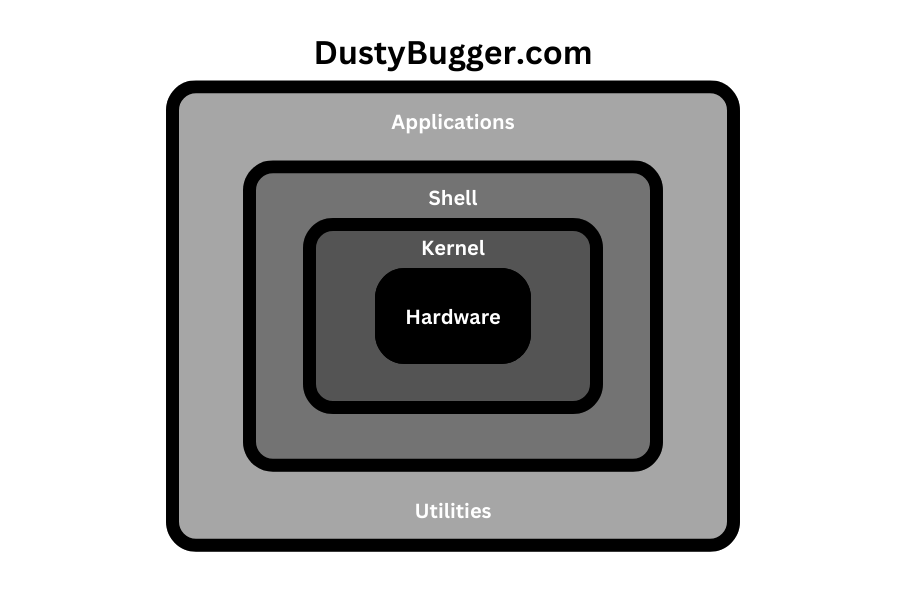Is Linux a Kernel or an Operating System? What's the difference?
Is Linux a Kernel or an Operating System? Let's solve the longstanding misconception around what Linux really is.
— Dusty

In our "What is Linux?" article, we stated that Linux was an operating system to keep it simple. However this is technically not true, and today we are here to solve the longstanding misconception around what Linux really is.
Kernel vs Operating System
To find out what Linux really is we need to know the difference between a Kernel and an Operating System.
Kernel
A kernel is the central heart and the lowest level of an operating system, responsible for managing system resources and facilitating low-level communications between hardware and software. However, it is still just one of many components of an Operating System.
Operating System
An operating system is a broader concept that encompasses various components, including the kernel. The operating system, includes the other components and services necessary that provide a complete environment for interacting with users. Such as a command line shell, applications and utilities.

So which is Linux?
Linux, at its core, is just the kernel. Developed by Linus Torvalds in 1991, the Linux kernel is the foundation upon which various operating systems, known as Linux distributions or distros, are built.
Therefore, the Linux kernel itself is not an operating system but rather the fundamental software that interacts with hardware components like the CPU, memory, and peripheral devices. It provides essential services such as process management, memory management, file system support, and device drivers. However, a kernel alone cannot offer a complete computing environment for users.
When people refer to "Linux" colloquially, they often mean a complete operating system that includes the Linux kernel along with a suite of software utilities, libraries, and applications. This amalgamation of the Linux kernel and user-level programs constitutes a functional and usable operating system.
Various organisations and communities have taken the Linux kernel and built their own distributions, each tailored to specific needs and preferences. Examples include Ubuntu, Fedora, Debian, and Arch Linux. These distributions provide a user-friendly interface, package management systems, and additional software to create a comprehensive environment for users to work with.
Summary
Understanding the difference between a kernel and an operating system is crucial for anyone delving into the world of Linux as it can get confusing very fast. Linux, created by Linus Torvalds, is a powerful and versatile kernel that serves as the foundation for numerous operating systems. When using the term "Linux," it's essential to clarify whether one is referring to the kernel or a complete operating system known as a Linux Distro to avoid misconceptions and promote a more accurate understanding of the components that make up the Linux ecosystem.
Want to learn more about Linux?
You can learn more about Linux by checking out the recommended articles section below or by checking out our Linux Tag to view all of our Linux articles!